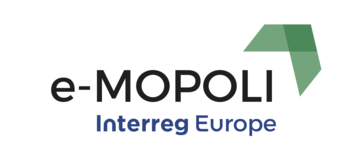The Regional Council of Kainuu (Finland), was responsible for drafting the e-MOPOLI methodology. The purpose of this methodology is to describe and structure the implementation approach of the project, including partners’ tasks and responsibilities, to support on-going evaluation of the quality and achievements of the project, and to allow, within certain limits, initiation of corrective actions whenever needed.
Based on the Interregional Policy Learning Road Map, the Methodology “needs to give partners in-depth information on how, when and with what results, proofs and quality standard certain activities, deliverables and outputs have to be prepared, what the quality assessment indicators will be, risk management and what the roles of each responsible partner are”. It is important that an integrated approach is developed for the recommendations, and this applies also to the Action plan.

The overall e-MOPOLI implementation methodology has to answer 3 questions: WHY, WHAT and HOW? Methodology includes 6 phases: strategic phase, diagnosis, benchmarking, action plan, implementation and monitoring. The Strategic phase is answering to the question “why”, while the diagnosis and benchmarking phases answer to the question “what”. The Action Plan then gives answer to the question “how”. Implementation and monitoring phases, in practice, are partners’ regional work with regional stakeholder groups.
Methodology is one of the top-level guidelines for project implementation, but the work and tasks of each partner are pivotal for the progress and results of the project. e-MOPOLI project is lucky to have motivated partners with a central role in the project and driven by the desire to develop their own area, so we’re expecting good results!


![[NEWS] Brescia: E-bike sharing in Brescia](/fileadmin/user_upload/tx_tevnewsevents/news/image_1664960602.jpg)
![[NEWS] Rogaland: battery-only high speed craft](/fileadmin/user_upload/tx_tevnewsevents/news/image_1664804367.png)
![[NEWS] BSC: promoting e-mobility in Gorenjska](/fileadmin/user_upload/tx_tevnewsevents/news/image_1660136312.png)
![[NEWS] BSC: new opportunities for cooperation](/fileadmin/user_upload/tx_tevnewsevents/news/image_1660136159.jpg)
![[NEWS] Rogaland: Solar power for electric airplanes](/fileadmin/user_upload/tx_tevnewsevents/news/image_1660135530.jpg)
![[NEWS] Bucharest: decarbonization of transports](/fileadmin/user_upload/tx_tevnewsevents/news/image_1656521459.jpg)
![[NEWS] Calabria: CENTRE FOR SUSTAINABLE MOBILITY](/fileadmin/user_upload/tx_tevnewsevents/news/image_1655983407.png)
![[NEWS] BSC: rental system network for bikes](/fileadmin/user_upload/tx_tevnewsevents/news/image_1655967495.png)
![[NEWS] Attica: Electromobility in Paiania](/fileadmin/user_upload/tx_tevnewsevents/news/image_1655110894.png)
![[NEWS] Attica: First e-bike festival in Athens](/fileadmin/user_upload/tx_tevnewsevents/news/image_1655110292.png)